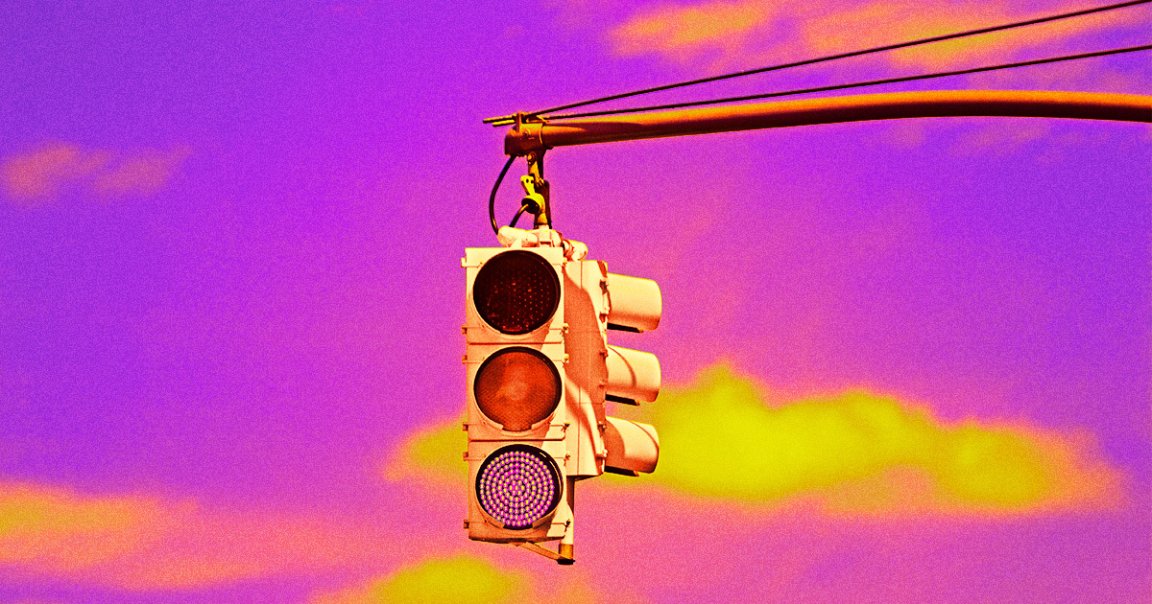
Signal Change
Google claims that its quietly rolled-out AI traffic signal project streamlines the process and reduces stoplight wait times — but it’s unclear exactly how helpful it really is.
Initially piloted in 2021, Google’s Project Greenlight is, as Scientific American explains, built on an algorithmic model that is supposed to be an alternative to the other two major systems of traffic signal control in use today.
While relying on either manually adjusted and fixed light changes or belowground sensors that let the systems know how many cars are at a given intersection, traffic design and control have long been a headache for urban planners.
Enter Project Green Light, which uses a model known as adaptive or responsive traffic that works with Google Maps data to essentially train the system to guess when traffic gets worse and program stoplights accordingly.
Newly deployed in Boston, cities like Seattle, Machester, England, and others have used Project Green Light to varying degrees of success.
It’s not the worst thing Google’s ever plugged, but anyone who has ever been in a fender-bender knows that sometimes, things happen on the road that can’t be predicted by an algorithm.
Bad Advice
While Boston boasts about its partnership with the project, officials from other cities that use the Google traffic light AI suggested in interviews with the magazine that its recommendations often fell short of the mark.
Representatives from the English city of Manchester, for instance, told SciAm that its traffic engineers often ignored Project Green Light’s recommendations regularly because they weren’t very good. Those same engineers had to manually set stoplights to prioritize things like bus routes, which the algorithms didn’t take into account, or to steer commuters away from driving through residential areas.
Even Mariam Ali, a spox for Seattle’s Department of Transportation who implemented Project Green Light and who generally spoke positively about the software, acknowledged its drawbacks.
Though she told the magazine that the city has “seen positive results,” Ali admitted that the Seattle DOT had to reverse a Google-recommended traffic shift because it “did not result in a net benefit.”
Aleksandar Stevanovic, a University of Pittsburg civil engineer who studies traffic control, told the magazine that although it’s “great that Google is working” on implementing high-tech solutions for the headache-inducing quandaries presented by traffic signals, human decision-making will always be key.
“Traffic has so many uncertainties,” Stevanovic noted. He added that controlling it is “not rocket science,” but is, in fact, “more difficult.”
More on Google AI: Google’s Demo of Its Latest AI Tech Was an Absolute Train Wreck